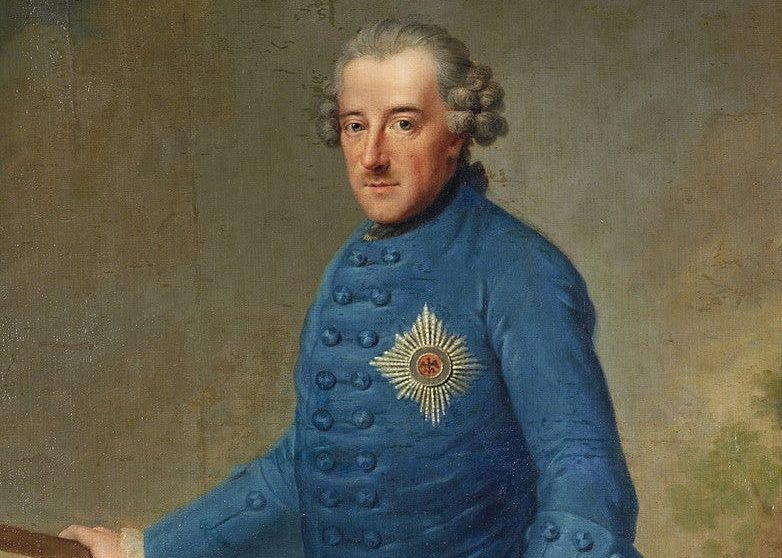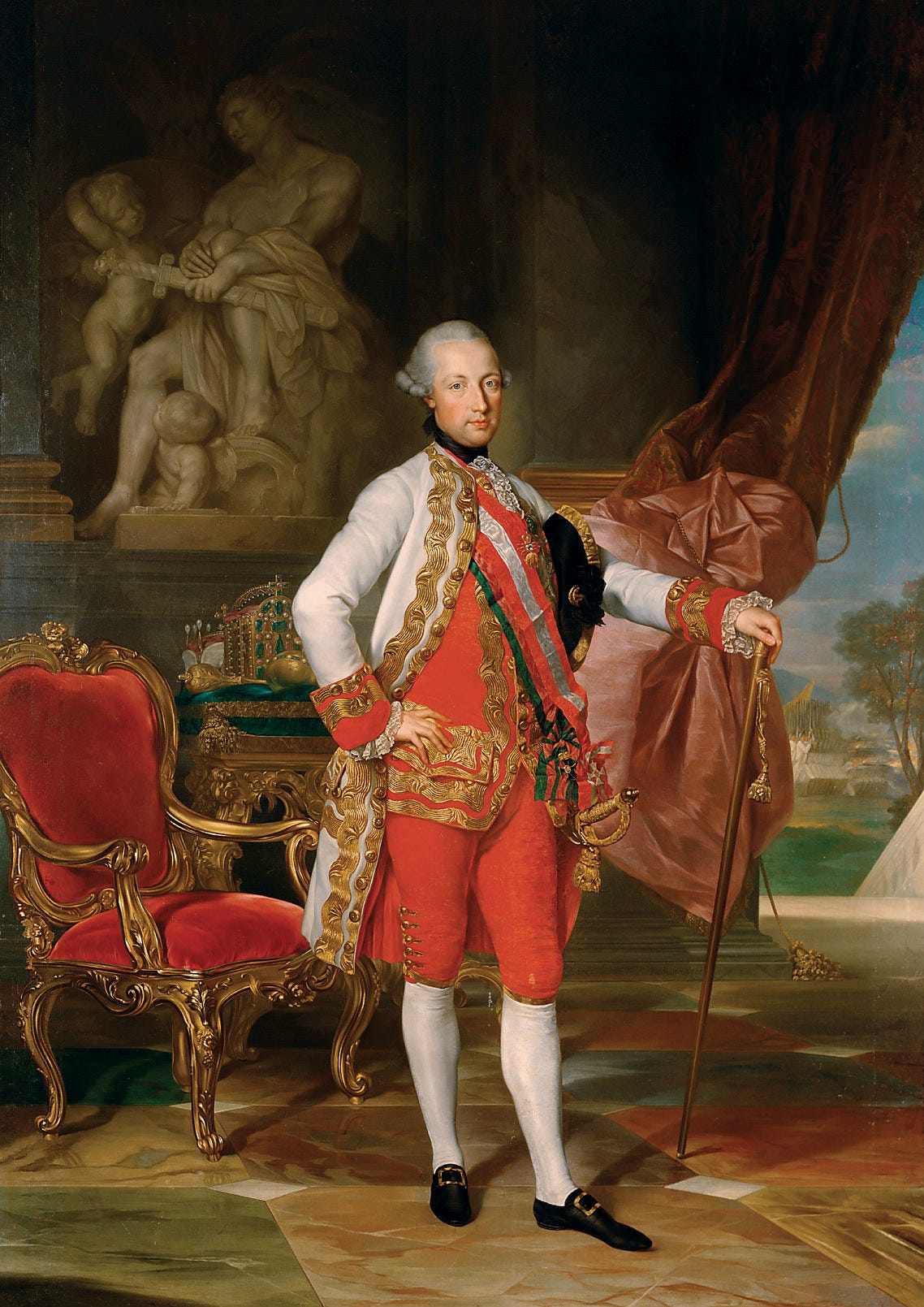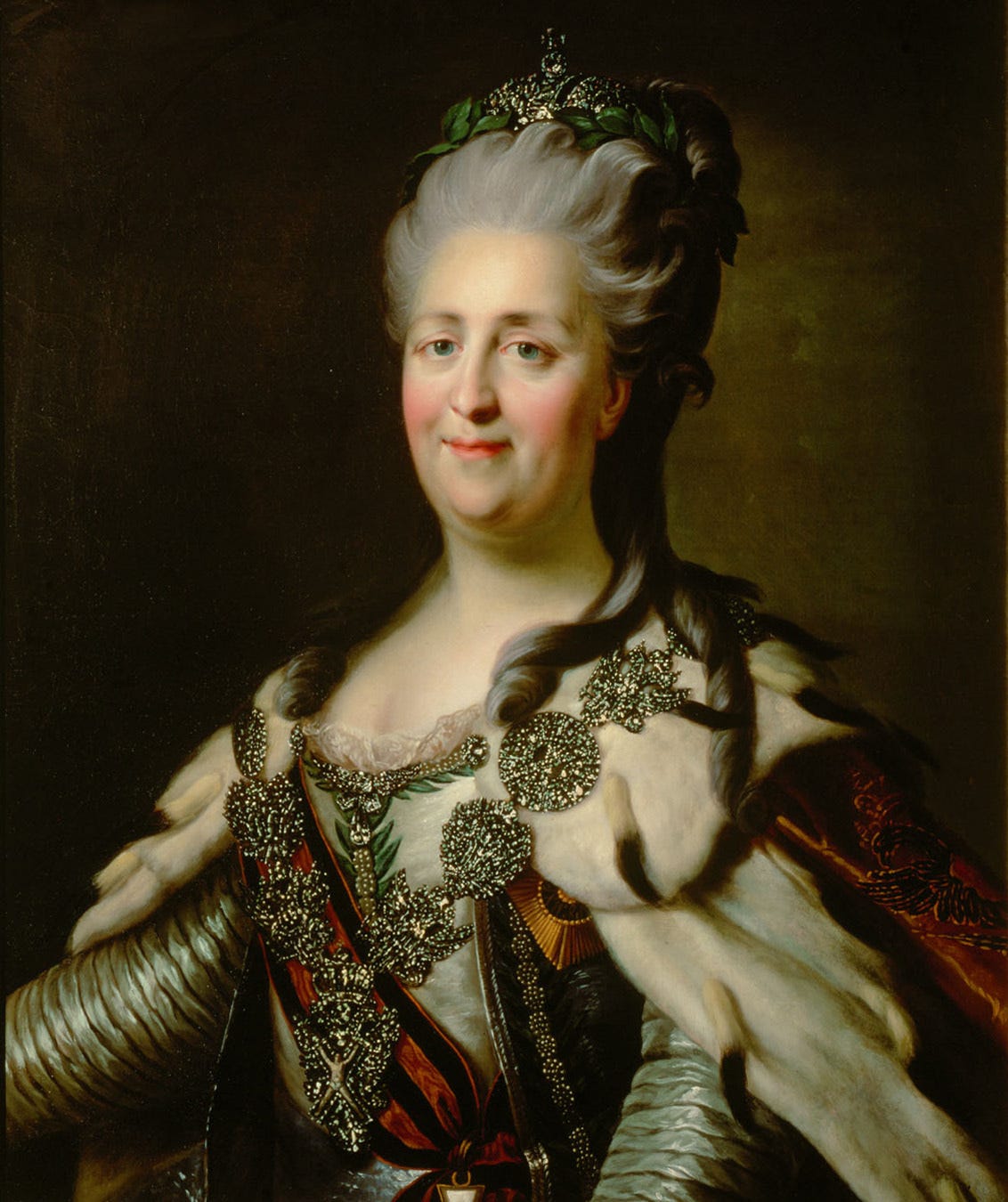
Frederick II, King of Prussia, 1740-1772. Portrait by Johann Georg Ziesenis (1763)
This article was originally published on The Intelligencer.
Enlightened absolutism, also known as enlightened despotism, was a form of government in the 18th century in which absolute monarchs pursued legal, social, and educational reforms inspired by the Enlightenment. This period was marked by a wave of intellectual thinking that emphasized reason, individualism, and skepticism towards traditional authority. Enlightened absolutists were monarchs who distinguished themselves from traditional absolute rulers by adopting Enlightenment ideals while maintaining their autocratic power.
The philosophy behind enlightened absolutism was rooted in the belief that an absolute monarch could act as a benevolent ruler, using their power to enforce reforms for the betterment of society. These monarchs were influenced by Enlightenment thinkers like Voltaire and John Locke, who advocated for rational governance and the idea that the ruler’s authority came from a social contract with the governed. Enlightened monarchs believed they could use their absolute power to promote education, science, and rational thought, thereby improving their nations.
One of the hallmarks of enlightened absolutism was a series of legal and administrative reforms. Monarchs such as Frederick II of Prussia, Catherine the Great of Russia, and Joseph II of Austria implemented measures to modernize their bureaucracies, streamline legal codes, and reduce the influence of traditional aristocracy and the church in governance. These reforms often included the promotion of religious tolerance, the abolition of torture and the death penalty in legal systems, and the establishment of state-run schools.
Another aspect of enlightened absolutism was economic reform. Enlightened monarchs sought to strengthen their economies through measures such as reducing trade barriers, modernizing agriculture, and encouraging industrial development. They often implemented policies to increase state revenue while attempting to promote social welfare, believing that a strong economy was necessary for a strong nation.
Despite the emphasis on Enlightenment values, enlightened absolutism was still fundamentally autocratic. The monarchs retained absolute control over their states, and their reforms were top-down initiatives. This approach often led to conflicts with traditional power structures, such as the nobility and the church, who saw their influence diminished. Moreover, the extent of the reforms varied greatly from ruler to ruler, and some monarchs were more committed to the principles of the Enlightenment than others.
The cultural impact of enlightened absolutism was significant. These monarchs often patronized the arts and sciences, contributing to a flourishing of culture during this period. They built academies, libraries, and theaters, and sponsored artists, philosophers, and scientists. This patronage played a crucial role in the spread of Enlightenment ideas throughout Europe.
A criticism of enlightened absolutism is that it was more about consolidating power than about genuine reform. Some historians have argued that the enlightened rulers used the rhetoric of the Enlightenment to justify their rule and strengthen their control over their subjects. They contend that while reforms were made, they were often limited in scope and designed more to enhance the power of the state than to empower individuals.
Despite its limitations, enlightened absolutism had a lasting impact on the development of modern states. The reforms initiated by these monarchs laid the groundwork for more extensive changes in the 19th and 20th centuries, including the development of constitutional monarchies and the expansion of civil rights. The idea that a ruler should be concerned with the welfare of their subjects became more widely accepted, influencing the evolution of governance in Europe and beyond.
In conclusion, enlightened absolutism represented a unique period in the history of governance. It was a time when absolute monarchs attempted to marry the autocratic power of traditional monarchy with the progressive ideas of the Enlightenment. While their success in implementing these ideals varied, their efforts marked a significant step in the evolution of modern governmental systems. The legacy of enlightened absolutism is complex, reflecting both the potential for reform within an autocratic system and the limitations inherent in absolute rule.
The study of enlightened absolutism continues to fascinate historians and political scientists. It raises important questions about the nature of power, the role of the state in promoting social and economic welfare, and the balance between authority and individual rights. Reflecting on this period, insight can be gained into the challenges and possibilities of implementing reform in any governmental system, highlighting the ongoing relevance of this historical phenomenon in understanding contemporary politics.
About the author
Will T. Sherman is an Analyst at The Intelligencer Newsletter, published by R9 media. A history enthusiast, he is particularly interested in the philosophical underpinnings of human existence.

